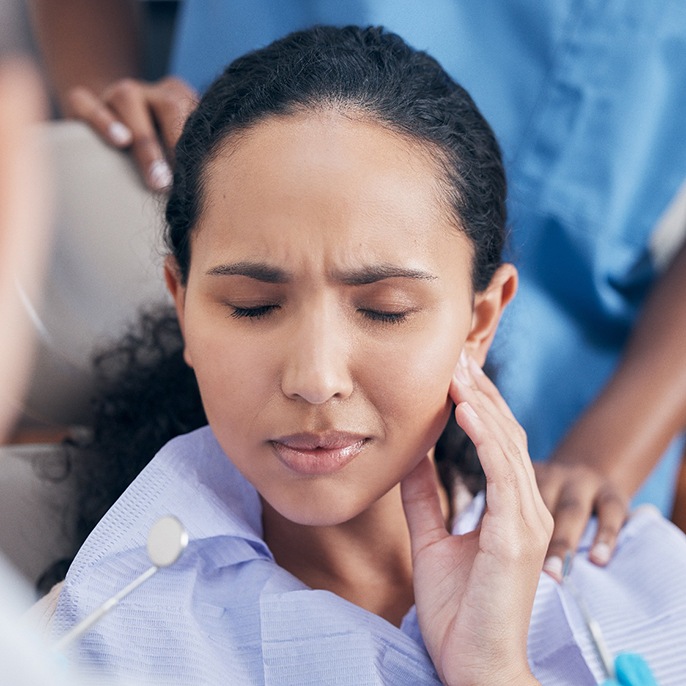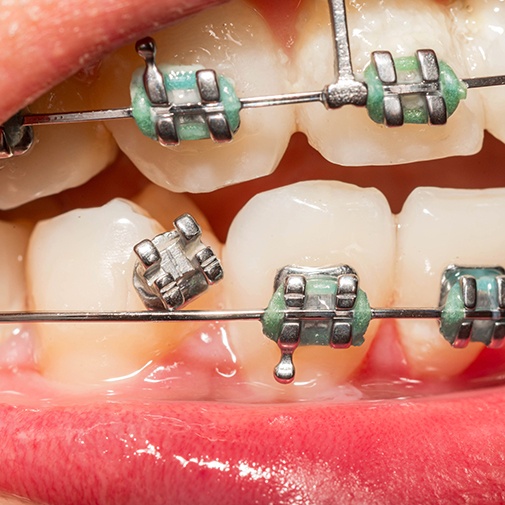Orthodontic Emergencies – Heath & Mt. Vernon, OH
Have an Urgent Orthodontic Problem? We Can Help!

Orthodontic emergencies always happen when they are least expected—that’s what makes them emergencies! They can happen to children and adults alike, and the result is usually a lot of oral pain mixed with worry.
Fortunately, if you find yourself in the middle of an orthodontic emergency, Wigal Orthodontics of Heath and Mt. Vernon is here to help. Dr. Timothy Wigal, Dr. Alex Kluemper, and our team will try our best to keep you comfortable and provide immediate assistance over the phone if you can’t get to us right away. If you are experiencing an orthodontic injury in Heath or Mt. Vernon, please contact our office that is closest to you as soon as you can; we’ll be ready to help.
Why Choose Wigal Orthodontics of Mt. Vernon or Heath for Emergency Orthodontic Care?
- Treating Patients as Quickly as Possible
- Delivering Fast & Comfort-Based Treatment
- We Welcome & Maximize Dental Insurance
How We Treat Orthodontic Emergencies

- Call Our Office. The first step you should always take if you break a bracket or are experiencing unanticipated discomfort caused by your orthodontic appliance is to call our office. Our friendly front desk staff can help determine if urgent emergency attention is required and provide you with over-the-phone first aid guidance. If necessary, we’ll schedule an appointment for you as soon as possible to make sure your treatment doesn’t get set back.
- Come in for an Examination. When you arrive, we’ll inspect the area of concern and take any necessary X-rays, like if you’re complaining of a toothache or dental sensitivity. Dr. Wigal or Dr. Kluemper will then diagnose the issue and let you know about your treatment options.
- Get Treatment. In many cases, we’ll be able to address a broken bracket or archwire in the same visit as your examination. However, if you have any underlying concerns, like a tooth infection or cavity, we will refer you to your general dentist for treatment.
The Most Common Orthodontic Emergencies
Emergencies with braces are rare, fortunately. However, there is still a small chance that you might experience a problem. These situations aren’t fun, but they’re often not as serious as the stress you might feel at the moment. Some orthodontic emergencies may require immediate attention, while others are not as urgent. Here’s what to do in the most common orthodontic emergencies:
Understanding the Cost of Orthodontic Emergency Treatment

Our team doesn’t want to add more stress to your plate, which is why we do our best to be as transparent as possible when it comes to communicating treatment cost with you. However, it’s important to keep in mind that every situation can vary, so we’ll need to examine your mouth before we can determine the next course of action. In any case, our front desk staff will help you maximize your dental insurance benefits as well as apply for third-party financing if you need it.
Keys to Preventing Orthodontic Emergencies

The only way to definitively avoid an orthodontic emergency is to never leave your house or eat, which isn’t an option! Luckily, there are simpler things you can do to minimize you or your child’s chances of experiencing an emergency.
Foods that are sticky, chewy, or extremely hard should be avoided during orthodontic treatment. One misplaced bite can easily damage brackets or warp wires.
It’s also a great idea to protect braces with an athletic mouthguard when participating in sports (whether they are contact or not). An unseen collision can easily knock a bracket loose or force the lips into them, which needless to say can be extremely uncomfortable.
As always, you should be diligent about brushing and flossing your teeth, and this is especially important if you have any kind of orthodontic appliance. Braces and Invisalign trays can trap food particles against the teeth, making you more likely to develop tooth decay, cavities, and gum disease. These conditions can derail your treatment if allowed, so keep them at bay by maintaining a consistent home routine.













